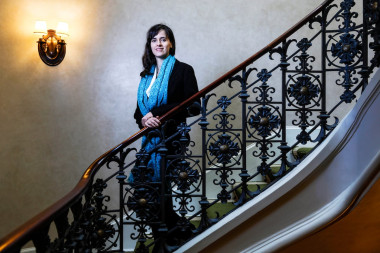‘If you want to have a good party, ask your friends not to take photos’: Carissa Véliz, expert in ethics applied to technology, advocates for a system of digital anonymity
cross-posted from: feddit.org/post/806357
Addition for the Archived link
Carissa Véliz is an expert in ethics applied to technology. The Spanish-Mexican philosopher, who does not provide a date or place of birth to protect her privacy, is one of the voices that warn us about the growing digital dangers that lurk at every corner and chip away at our individual autonomy.
Carissa Véliz: Autonomy is a fundamental principle. To have it, you need space to make your own decisions, to think about what your values are and act in that direction. And when they are watching you all the time, the other’s gaze is oppressive, it seeks your compliance. The simple fact of being observed reduces our impulse to experiment, to ask. Human beings need privacy, intimacy and a certain solitude to discover ourselves […]
We don’t realize how surveillance influences us. If we turned off the cameras we would see that we do not think the same, we do not express things the same way, there is not the same type of frankness in the debate […]
Anonymity is one of the most important social innovations of democracy, in particular, the possibility of making an anonymous protest, going out into the streets… Today we carry our cell phones with us, which identifies us, and that sometimes means that people do not show up when they need to […]
China takes the lead [in the rejection of any privacy], it has no pretensions to being democratic or liberal. It is going all out with surveillance, it intends for it to be centralized. The surveillance you are subjected to at work has consequences on your personal relationships in a country like this. It affects, for example, the visibility you achieve on dating applications […]
Obviously, we [in the West] need regulation. Collective problems need collective solutions. It is not up to the individual to change things and yet we have power; When we change our behavior, companies and governments are sensitive to it. It’s not about not using your cell phone. We must try to protect our privacy when we can and it is not too demanding. Instead of using WhatsApp, use Signal. It’s free, it works just as well, it doesn’t collect your data. Instead of using Gmail, use Proton Mail […]
Any decision that can significantly affect a person’s life [should never be left in the hands of AI]. AI is not a moral agent, it cannot be responsible for harming someone or denying them an important opportunity. Nor should we delegate to AI jobs in which we value the empathy of a fellow citizen who can understand what we feel.
